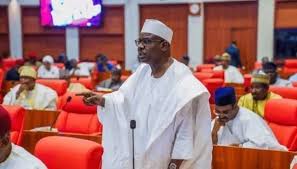Senator Ali Ndume, representing Borno South in the National Assembly, has cautioned both the media and political actors against attributing Boko Haram insurgency attacks to religious motives, stressing that such profiling is dangerous, divisive, and does not reflect the true nature of the conflict.
The lawmaker, who has been at the forefront of legislative advocacy for the welfare of internally displaced persons and military personnel, spoke against the backdrop of recent coordinated assaults in Borno State, particularly in Gwoza and Askira-Uba local government areas, where Muslim farmers and Christian residents were among the casualties. Reports had initially suggested that Christians were targeted in the attacks, but Ndume condemned such claims, describing them as reckless misrepresentations that risk inflaming sectarian divisions in a region already grappling with violence.
He explained that Boko Haram insurgency has never been limited to one religion, noting that Muslims and Christians alike have been victims of the group’s terror. According to him, the insurgents have destroyed mosques, churches, schools, markets, and other community structures without discrimination, and their ideology is built around violence, not faith. He said the tragedy in Ngoshe, where five Muslim farmers were killed, and Mussa community, where three Christian residents were murdered, proved once again that Boko Haram does not spare anyone.
The senator also used the opportunity to commend the sacrifices of the Nigerian military, saying the efforts of soldiers have prevented even greater devastation in the North-East. He however emphasized that the troops need more support, particularly in terms of equipment, logistics, and welfare. He added that while the military continues to battle the insurgents in the forests and border communities, the media must also play its role responsibly by ensuring balanced reporting that does not aggravate tensions.
Ndume urged Nigerians to unite against terrorism and view the insurgency as a collective national security challenge rather than a religious war. He concluded by reminding citizens that healing from years of insurgency will require accurate narratives, resilience, and solidarity across ethnic and religious divides.
NDUME WARNS AGAINST RELIGIOUS PROFILING OF BOKO HARAM ATTACKS
RELATED ARTICLES



